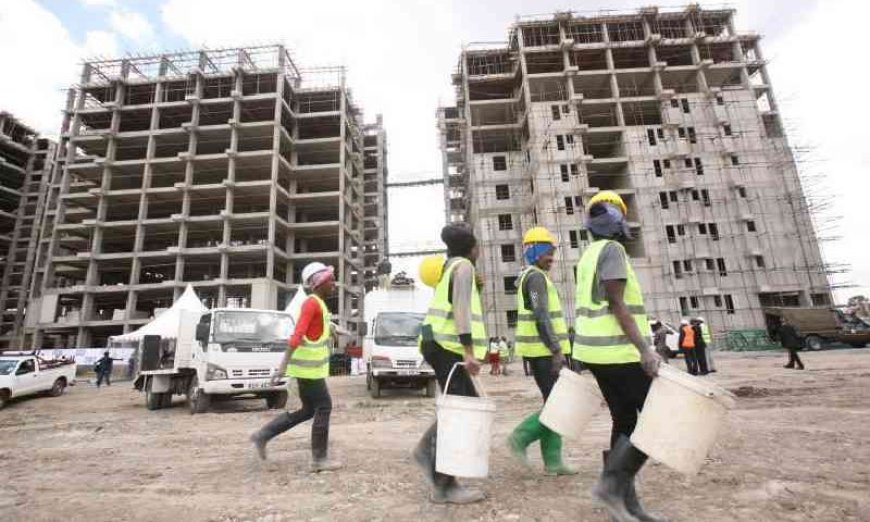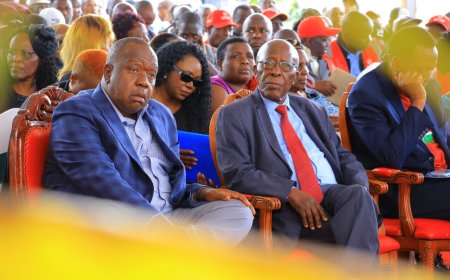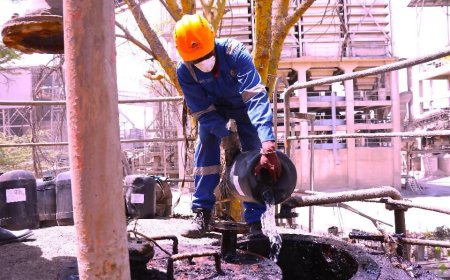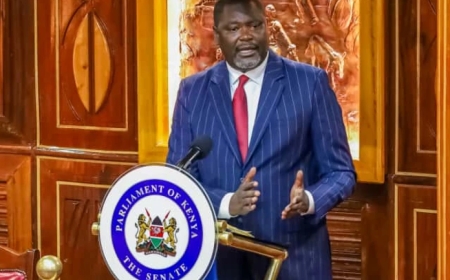Government Halts Controversial Housing Levy Diversion
This crucial decision comes after a high-level meeting between President William Ruto and the Central Organization of Trade Unions Secretary-General, Francis Atwoli, signalling a win for workers who have been advocating for the levy's original intent: affordable housing.

In a significant policy shift, the Kenyan government has suspended the controversial diversion of Housing Levy funds that were being used for the construction of markets across the country.
This crucial decision comes after a high-level meeting between President William Ruto and the Central Organization of Trade Unions Secretary-General, Francis Atwoli, signalling a win for workers who have been advocating for the levy's original intent: affordable housing.
The Housing Levy, a mandatory deduction from both employees' and employers' gross salaries, was established to fund the government's ambitious Affordable Housing Programme .
Recent months saw growing public outcry and opposition, led by COTU, over the expansion of the levy's mandate to include the construction of social infrastructure like markets, police stations, and schools.
Critics argued that this diversion undermined the core purpose of the fund and potentially opened avenues for misuse of public money.
Following the closed-door meeting at State House, COTU Secretary-General Francis Atwoli confirmed the government's commitment to revert the funds to their intended use.
"All funds that have already been used to construct markets under the Affordable Housing Programme will be refunded to the Affordable Housing Levy Fund," Atwoli stated.
A special committee is set to be established under the Affordable Housing Board. This committee, with representatives from both national and county governments, will oversee the recovery and reallocation of funds from markets already built or under construction back into the affordable housing fund.
The agreement also brings good news for salaried Kenyans, who are the primary contributors to the levy.
The government has committed to giving priority in housing allocation to these workers.

The mandatory 10 percent deposit for a housing unit's purchase price has been reviewed downwards to five percent, making affordable housing more accessible.
While President Ruto's administration had previously defended the broader use of the housing levy, citing its role in wider infrastructure development and job creation, the recent engagement with COTU highlights the government's responsiveness to public and worker concerns.
The initial intention behind the Housing Levy, which mandates a 1.5 percent contribution from both employers and employees, was to address Kenya's significant housing deficit and provide decent, affordable homes for low and middle-income households.
This suspension marks a critical turning point, reaffirming the dedication of the Housing Levy to its foundational purpose.
It remains to be seen how quickly the refund and reallocation process will be implemented, and how this decision will impact the government's broader plans for market construction, particularly the ambitious goal of building 400 markets under the economic stimulus program.
For now, Kenyan workers can breathe a sigh of relief as their contributions are steered back towards the promise of affordable housing.
What's Your Reaction?
 Like
0
Like
0
 Dislike
0
Dislike
0
 Love
0
Love
0
 Funny
0
Funny
0
 Angry
0
Angry
0
 Sad
0
Sad
0
 Wow
0
Wow
0

















































